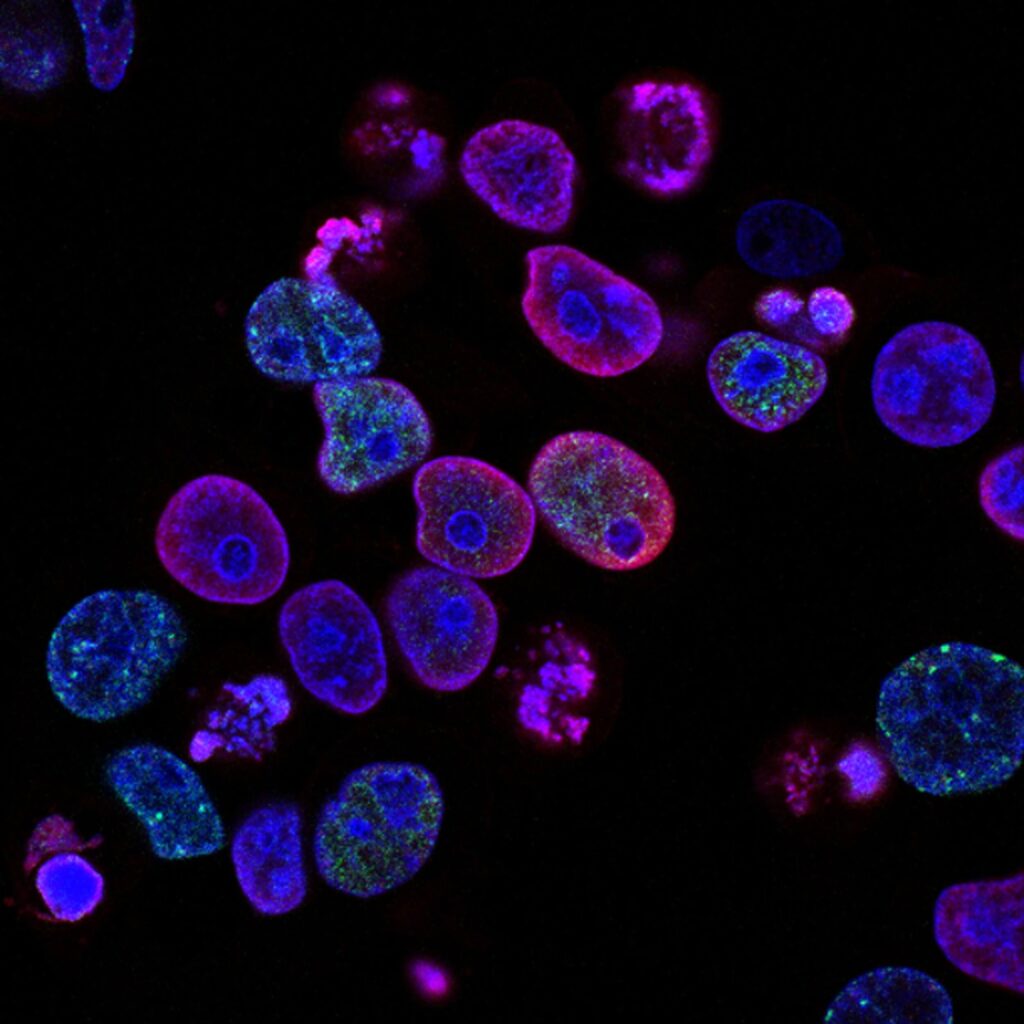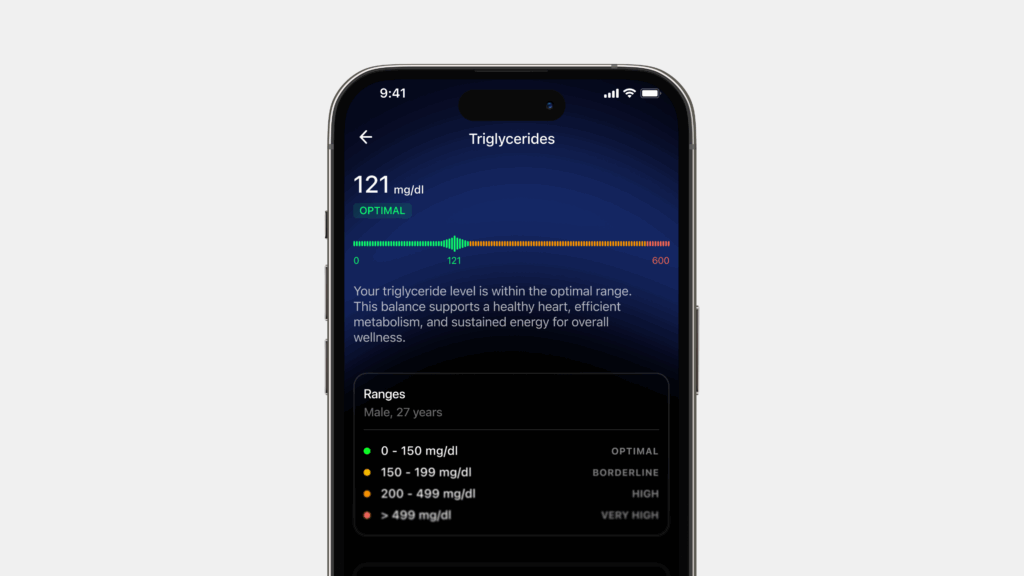Introduction
“Cancer cells love glucose,” says Rama Natarajan, chair of the Department of Diabetes Complications and Metabolism and an expert in molecular oncology (comprehensive cancer centre, City of Hope). This assertion lends credence to the Warburg effect, identified by Nobel Laureate Otto Warburg and considered a hallmark of cancer. According to this effect, cancer cells devour and metabolize glucose at almost 200 times the usual rate. (19)
The connection between sugar and cancer has been a subject of interest in medical research for a long time. Recent evidence suggests that there is indeed a correlation between hyperglycemia (high blood sugar levels) and some types of cancer. (1)
Let’s break down everything you need to know about the correlation between cancer and blood sugar.
What is cancer?
According to the National Health Service (NHS), (3) cancer is a medical condition in which cells in a certain part of the body grow and reproduce at an uncontrollable rate. The new cancerous cells may then invade and destroy the healthy tissue surrounding them. In some cases, cancer begins in one part of the body and spreads to other areas. This process is known as metastasis.
The WHO notes that cancer is a leading cause of death worldwide, having accounted for nearly ten million deaths in 2020 alone. (4) Cancer can be caused by a myriad of factors, including lifestyle, family history of cancer, genetic disorders, exposure to certain viruses and environmental exposures. (5) Certain types of radiation can also cause cancer, particularly high-energy forms of radiation such as x-rays and gamma rays; in the case of medical procedures, though, the risk is very small and usually outweighed by the benefit. (6)
Cancer patients experience numerous symptoms during their illness like
- Fatigue
- Lumps that can be felt beneath the skin
- Unintended weight changes
- Changes to the skin, (changes to moles, darkening of the skin, etc.)
- Changes in bowel or bladder movements
- Persistent coughing
- Breathing trouble
- Difficulty swallowing
- Hoarseness
- Persistent indigestion
- Unexplained muscle or joint pain
- Unexplained fevers
- Unexplained bleeding or bruising
(7) These symptoms are a consequence of the mutations in DNA that take place when someone gets cancer. (8) The DNA is part of a larger system that instructs cells on what functions to perform. So, when mutations create errors in these instructions, the cells stop functioning normally and may even become cancerous.
What is the correlation between cancer and blood sugar?
Glucose or blood sugar is the fuel of the brain. It constantly works to feed every single cell in the body. In fact, it is so important that even without consuming any carbohydrates in our diet, our body will still make sugar from other sources, including protein and fat. (9)
Insulin is the hormone that facilitates the absorption of blood sugar in the body’s cells. Excess consumption of simple carbs can lead to elevated insulin levels. High insulin levels are a cue for the body to use bonus calories for building reserves for the future. Research demonstrates that higher insulin levels may influence the growth of cancerous cells and increase a person’s risk of contracting other chronic diseases. Some forms of cancerous cells have a lot of insulin receptors, meaning they are more affected by insulin’s ability to promote cell development than non-cancerous cells; so, they are more likely to grow at a faster rate. (10)
Research shows that glucose can be a driving force for the growth of cancerous cells when glycolysis is the primary energy source for tumour cell chemotaxis (movement of cells in a chemical gradient). (11) Studies demonstrate that cancer cells promptly use glycolysis, an unsuitable metabolic pathway for energy metabolism, even when adequate oxygen is accessible. This explains the Warburg effect (altered cellular metabolism found in cancer cells. (20)
However, research also suggests that cancer risk is not necessarily increased based on a person’s increased sugar intake; rather it is related to how your body responds to sugar. (12)
Eating sugar-rich foods without pairing them with other food groups such as proteins and fats causes a considerable spike in blood sugars, particularly if a person is insulin-resistant. Insulin resistance refers to the inefficiency of cells to respond to insulin and absorb glucose from the bloodstream. Cancer risk is related to how your body responds to sugar and not to sugar intake itself. This then results in an increase in the secretion of insulin-like growth factor (IGF), which stimulates the production of cancerous cells. By controlling our blood glucose levels better, we release less IGF, consequently decreasing the risk of cancerous growth. (13)
Glucose variability and oxidative stress
The internal oscillation in blood glucose levels is called glucose variability. It can be measured in terms of glucose values over time. When there are drastic changes in blood sugar levels, this imbalance leads to oxidative stress. It refers to an imbalance between the production of reactive oxygen species (free radicals) and antioxidant defenses. Oxidative stress is found to be associated with cancer.
The link between specific types of cancer and blood sugar
A Swedish study on high blood sugar and cancer risk didn’t find a correlation between hyperglycemia and men’s overall cancer risk, but in the case of women, high blood sugar was associated with the development of cancer. When researchers examined specific types of cancer, it was found that high blood sugar in both sexes could make them susceptible to pancreatic cancer, malignant melanoma and urinary tract cancer. It’s important to note that the findings of this study do not show causality. (14)
Additionally, endometrial cancer, which is cancer of the lining of the uterus, was more common in women with higher blood sugar levels, while breast cancer was also found to be more common in women below the age of 49 who demonstrated high blood sugar levels. (15)
Further research has shown that people with diabetes, be that type 1 or type 2, experience more damage to their DNA when blood sugar levels are high, thereby increasing their cancer risk. In fact, people with diabetes are thought to have as much as a 2.5-fold increased risk for developing certain cancers, including ovarian, breast and kidney cancer, among others. (16)
Existing research suggests that the likelihood of developing certain types of cancer is lower in people with lower levels of blood sugar. It does not establish causality. Ultimately, more research needs to be done to investigate the link between specific cancers and high blood sugar.
Myth-busting
Myth: People who have cancer shouldn’t eat sugar since it can cause cancer to grow faster.
First, it is important to note that more research is needed for us to better understand the correlation between sugar intake and cancer. While it is true that all kinds of cells, including cancer cells, depend on glucose for energy, it is not necessarily true that consuming more sugar will make cancer cells grow faster, just like consuming less sugar won’t slow down their growth. (17)
Even though sugar consumption may not directly accelerate cancer cell growth, it can be one of the lifestyle factors associated with increasing the risk of cancer. Eating too much sugar can lead to weight gain and the risk of obesity and diabetes, all of which are considered to be risk factors for cancer to develop in the body. (18)
This myth arose in part due to a misunderstanding of positron emission tomography (PET) scans, which typically use a form of glucose as a radioactive tracer. All tissues in your body will absorb some of the tracer, but tissues that use more energy, such as cancerous cells, will absorb larger amounts. This has led people to think that sugar makes cancer cells grow faster, which is not true. (19)
Conclusion
So, we’ve told you what cancer is, how it shows up in our bodies and we’ve discussed the link between cancer and blood sugar levels.
It is clear that this is an area that would benefit from considerable research efforts. However, the key points to take away are that while there is a link between hyperglycemia and cancer, it is not necessarily related to sugar intake but how the body processes blood sugar. Research suggests that higher insulin levels may prompt the growth of cancerous cells. Studies also show that cancer cells use glycolysis, an ineffective metabolic pathway for energy metabolism leading to the Warburg effect. It refers to the inclination of cancer cells to metabolise glucose anaerobically rather than aerobically. Some research also indicates that high blood sugar in both sexes could make them susceptible to pancreatic cancer. Existing research suggests that the likelihood of developing certain types of cancer is lower in people with lower levels of blood sugar.
There are a wide range of factors that can contribute to the development of cancer, many of which are still largely under the scanner.
References
- https://www.hindawi.com/journals/bmri/2014/461917/
- https://www.webmd.com/diabetes/guide/diabetes-hyperglycemia
- https://www.nhs.uk/conditions/cancer/#:~:text=Cancer%20is%20a%20condition%20where,process%20is%20known%20as%20metastasis.
- https://www.who.int/news-room/fact-sheets/detail/cancer
- https://stanfordhealthcare.org/medical-conditions/cancer/cancer/cancer-causes.html
Disclaimer: The contents of this article are for general information and educational purposes only. It neither provides any medical advice nor intends to substitute professional medical opinion on the treatment, diagnosis, prevention or alleviation of any disease, disorder or disability. Always consult with your doctor or qualified healthcare professional about your health condition and/or concerns and before undertaking a new health care regimen including making any dietary or lifestyle changes.







